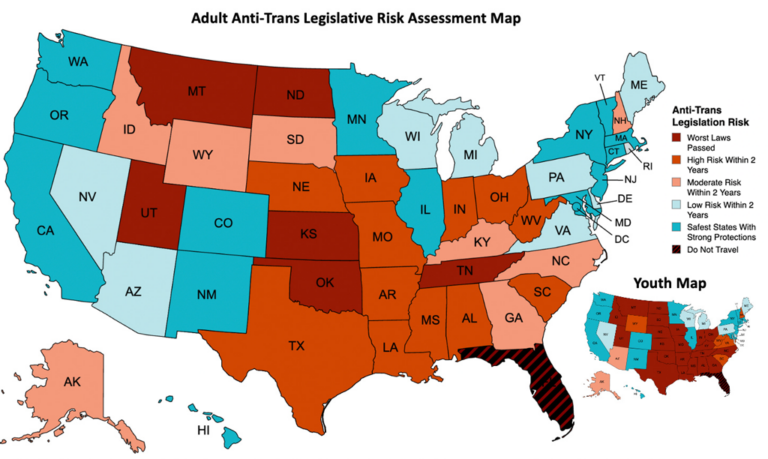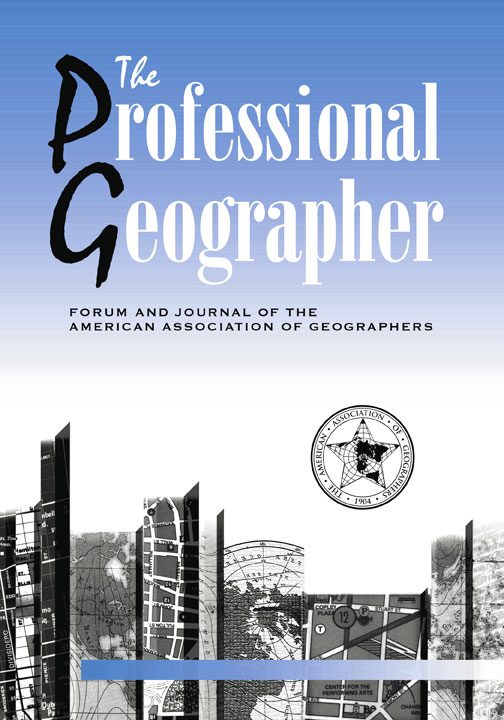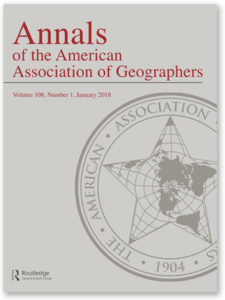Boston: Geography in a Sanctuary City
Thousands of geographers will convene in Boston from April 5-9 to discuss geographic research, education, and innovation, and form new collaborations with like- and differently-minded scholars, researchers, and practitioners. They will strive to interpret, understand, and respond to the current political climates using their expertise in and perspectives of geography and its many diverse sub-disciplines.
Boston, a city central to the history and development of democracy in the United States, will provide a fitting backdrop for the 2017 AAG Annual Meeting and much needed thoughtful discussions on human rights, social justice, immigration, and countless other relevant topics. The city’s history of defiance and pursuit of freedom are inherent aspects of Boston’s sense of place. It should come as no surprise, then, that Boston has taken a stand against the decrees of the new president.
Boston, like many cities across the United States, has taken steps to lawfully resist Donald Trump’s recent executive order, which bans citizens from seven Muslim-majority nations from immigrating to the US. “I want to say directly to anyone who feels threatened today, or vulnerable, you are safe in Boston,” said Mayor Martin J. Walsh. “We will do everything lawful in our power to protect you.”
“I want to say directly to anyone who feels threatened today, or vulnerable, you are safe in Boston. We will do everything lawful in our power to protect you.”
Thanks to the Trust Act passed in 2014, Boston is able to offer immigrants some protection from federal overreach by prohibiting its police from detaining anyone based on their immigration status without a criminal warrant. Boston Mayor Walsh released a statement regarding the orders:
“Preventing people from entering this country based solely on faith runs counter to everything we stand for as Americans. Let’s be clear: this is not an effective way to combat terrorism and increase homeland security.
“It is a reckless policy that is rooted in fear, not substance, and further divides us as a nation and a world. It is simply morally wrong. As Americans, we must move forward together as a country proud of our diverse heritage, and find real solutions to the challenges we face.”
Moreover, it should be of little surprise that Boston moves to protect undocumented immigrants. It is, after all, a city of immigrants. In fact, it was the Immigration Act of 1965 that led to substantial changes in the demographic makeup of Boston. The percentage of foreign-born residents doubled by 2010 with these newer waves of immigration representing greater diversity than Boston experienced in previous decades.
Boston, however, is not alone. Other cities throughout the state of Massachusetts, such as Cambridge, Salem, Somerville, Chelsea, Orleans, Northampton, and Springfield have codified their sanctuary status or are considering it. In addition, the Massachusetts Attorney General and State Senate have also expressed their opposition to this policy. Attorney General Maura Healey joined with other attorneys general in a lawsuit, and the Massachusetts Senate passed a resolution strongly condemning the travel ban.
“The Senate passed this resolution [Feb. 2] in solidarity with those affected by the order, and sends an important message that the Massachusetts state Senate rejects discrimination based on race, ethnicity, nationality, gender or religion,” said state Sen. Kathleen O’Connor Ives.
Then late last week, a Seattle federal judge blocked the Administration’s travel ban. This, as they say in journalism, is a developing story. And Boston is poised to offer a historical perspective, as well as a first-hand look at geopolitical discourse as it happens. This makes it all the more meaningful that geographers, who identify the significance of all places, should be coming to gather in this particular place at this particular time.
—
David L. Coronado
DOI: 10.14433/2017.0003


